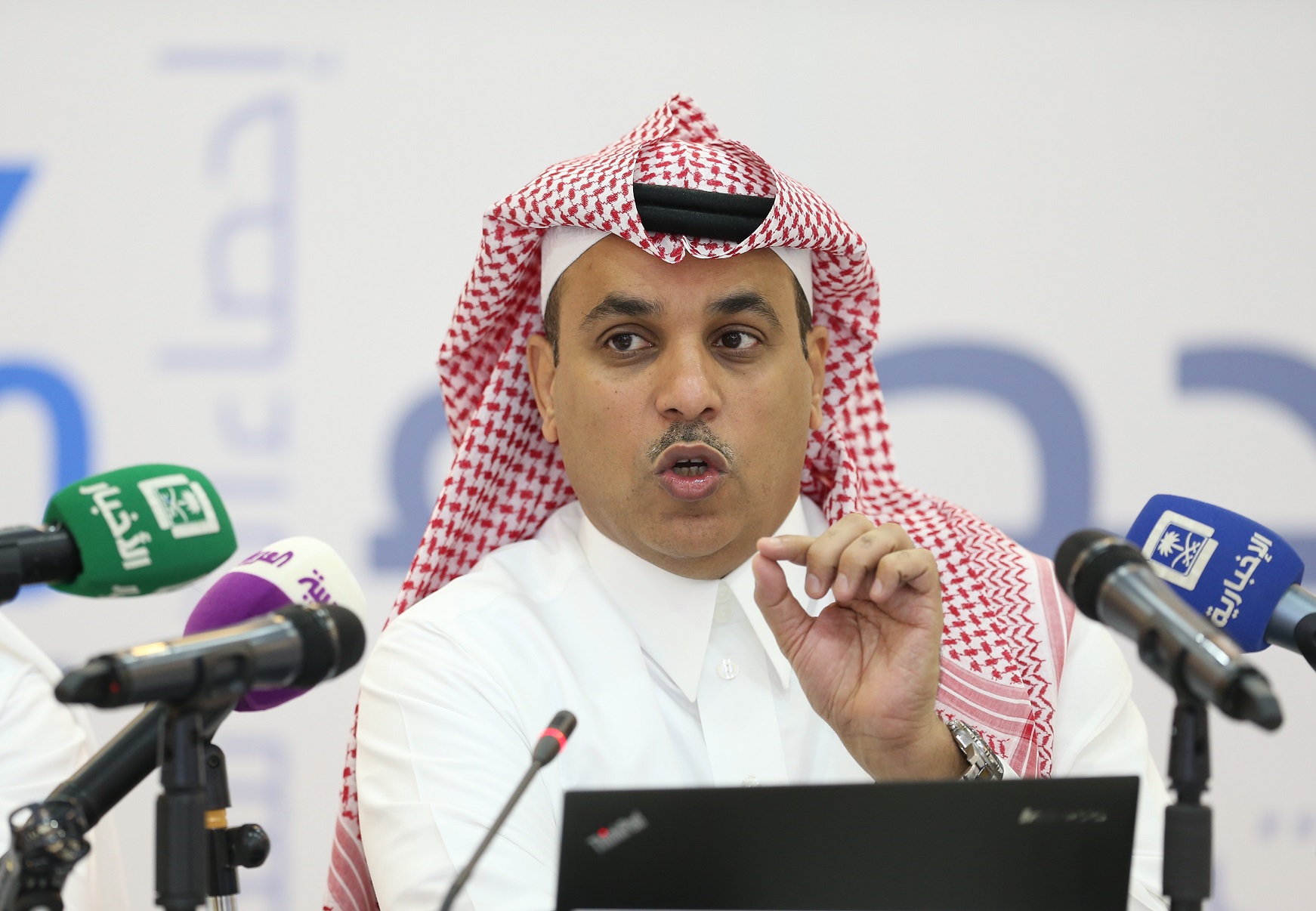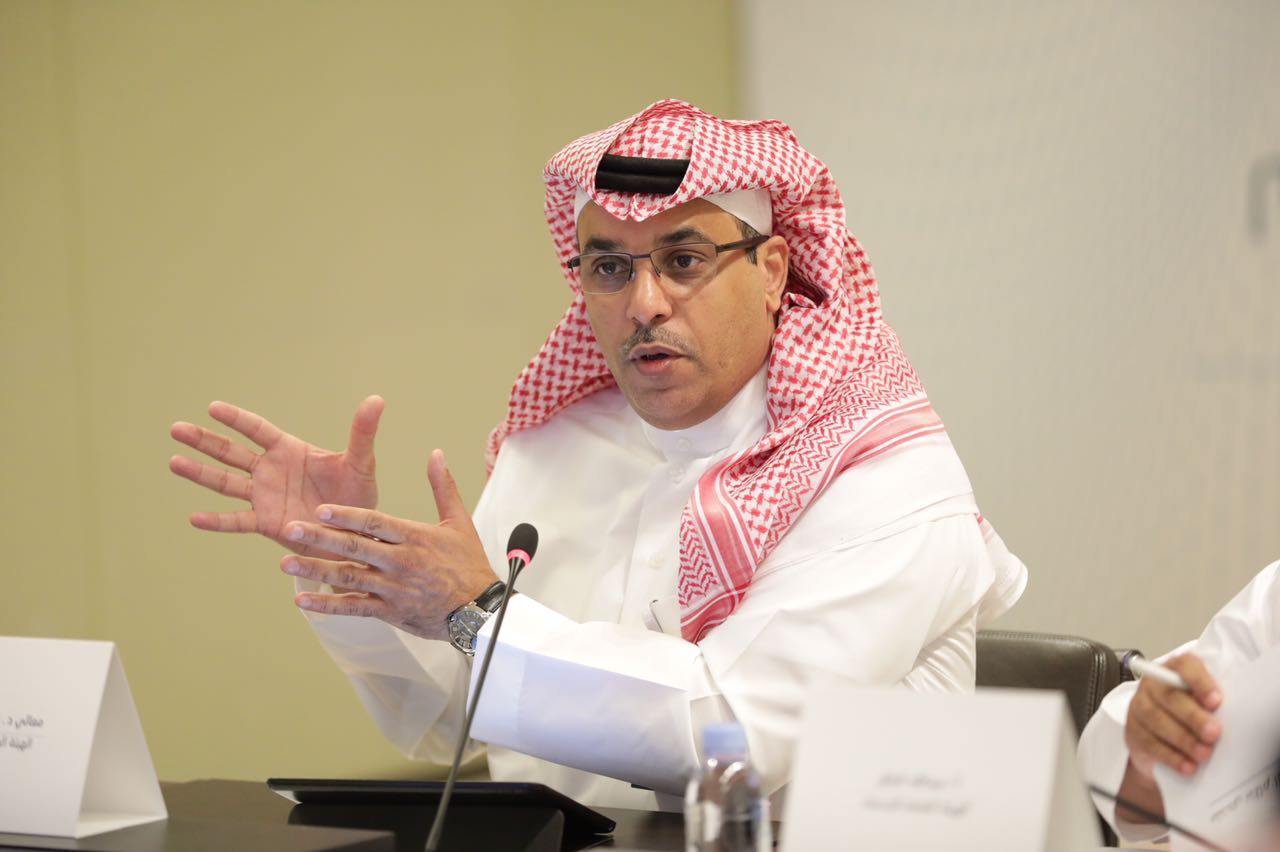
الهيئة العامة للإحصاء تناقش مسودة نظام الإحصاءات العامة
In Collaboration with 19 Government Entities to Develop the Statistical Sector
GaStat Discusses the General Statistics system draft
Within the framework of activating the statistical sector in the Kingdom of Saudi Arabia, the General Authority for Statistics (GaStat) held a workshop on Wednesday, 28 Sha’ban 1438H corresponding to 24 May 2017 with 19 government entities and specialized consultation bodies. The workshop was held to discuss the draft of the general statistics system in preparation for its submission to GaStat’s board of directors then for the concerned entities for approval.
H.E. Dr. Fahad Altekhaifi, GaStat President, expressed his gratitude to the workshop participants and asserted that developing the statistical sector is a joint responsibility between relevant entities. He also added that the aim of this workshop is to ensure that the proposed system draft meets all requirements which maximizes its benefit. Furthermore, he explained that the proposed system draft is comprehensive and keeps up with the latest developments in statistical systems in order to activate statistical work and deepen its impact on planning and enhancing statistical awareness. It also regulates the relationship between GaStat, as a supervisor and organizer of the statistical sector in Saudi Arabia, and all constituents of the statistical sector which includes beside GaStat; statistical administrative units in all government entities, private sector and academic sector.
GaStat’s President also confirmed that the current system provides a solid structure for statistical work with the amendments that have been made over the past years. The regulation which was issued by the Council of Ministers Decision No. 11 issued in Muharram 13th, 1437H enhanced and completed the process of developing statistical work. The regulation included a number of subjects that covered a group of regulatory provisions and the most important of these subjects: emphasizing that the Authority has a public juridical personality, and a financial and administrative independence, it is the entity in charge of statistical affairs, the only official reference to implement statistical work, and it’s the only technical supervisor and regulator of statistical work, it is managed by a board of directors which by the regulation has the powers and authority on the statistical sector and its components in the Kingdom of Saudi Arabia. The regulation gave the Authority the task of establishing a permanent coordinating committee. It also gave it the responsibility of establishing a central system for information which is connecting electronically with all concerned entities. In addition to implementing statistical work, the regulation also assigned other tasks to the Authority which include: applying recognised international standards which include statistical work methodology, survey design and implementation, conducting research and studies, analyse data and information, all information and data documentation work, collecting statistical data and information that covers all aspects of life in Saudi Arabia from its different sources and classify it and section it, either from surveys and censuses or from administrative records in public entities and private establishments, analyse this data and extract its indicators, prepare evidences and national statistical classifications according to international standards, using it and developing whenever needed, prepare statistical bulletins and reports of surveys and research and publish it. The regulation also gave the Authority the right to provide statistical services, conduct surveys, prepare statistical research and studies, provide data from its databases to establishments and business sector in a commercial manner and shall benefit from its financial revenues in financing statistical and information services provided. In addition, it is responsible of transmitting knowledge and provide recommendations to public entities to develop all information system and statistical work methodology to achieve a comprehensive, accurate and unified statistical system and to develop public awareness of the importance of statistics, and to monitor and follow up all published data on the Kingdom of Saudi Arabia with the competent regional and international bodies and coordination with the concerned entities. This regulation reflects the leadership's keenness to develop the main infrastructure of all development decisions considering that the statistical products and services given by GaStat is a solid base to support all national development decisions and support policymakers with information that is considered as the compass of development work, which makes this regulation an added value at the development level on one hand and the activation of the national strategy for statistical development on the other.
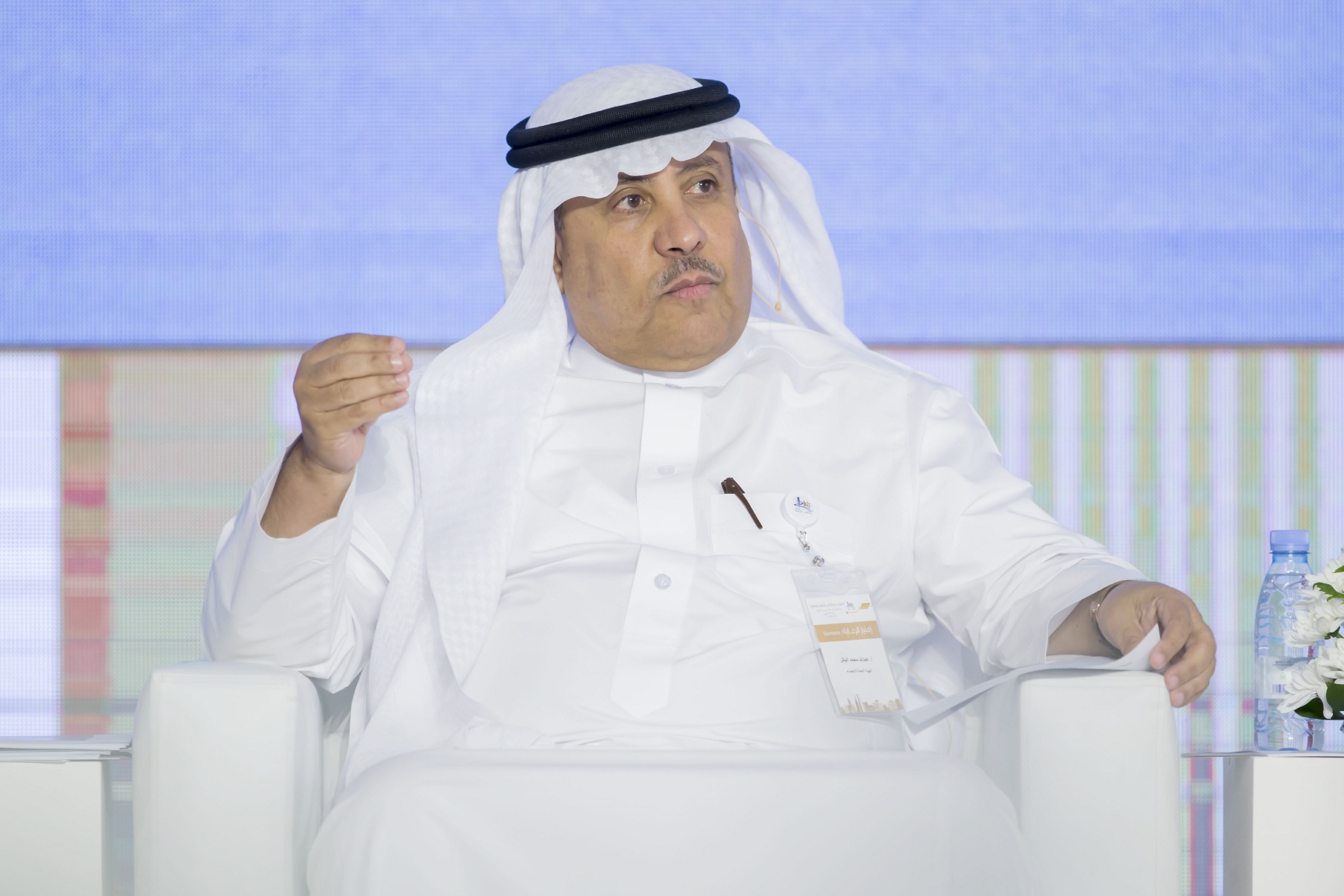
" الإحصاء" : انخفاض مؤشر أسعار العقارات للربع الأول من 2017
Based on ministry of justice registry data
GaStat launches real estate index indicator
On Monday 27th of Rajab 1438 H corresponding to 24th of April 2017, GaStat launched the Saudi real estate index indicator. This indicator is based on available registry data of the ministry of justice which are about real estate transactions . GaStat described this indicator as an essential tool that supports entities which make economic and statistical decisions associated with real estate price movements and future expectations during different periods of time. The indicator includes three main sectors composed of many real estate classes: residential sector ( piece of land, building, villa, apartment, and house) , commercial sector (piece of land, building, shop, and commercial center), and agricultural sector ( agricultural lands).
Real estate price index indicator showed a decrease in the Saudi real estate prices during the first quarter of 2017. The indicator registered a decrease of (2.3%) compared to the previous quarter (fourth quarter of 2016). Whereas it registered a decrease of (9.9%) during the first quarter of 2017 compared to the same quarter of last year.
The report attributed the decrease in the first quarter of 2017 (compared to the previous quarter) to the decrease in all composing sectors: commercial sector (1.8%), residential sector (2.6%), and agricultural sector (0.3%).
On the other hand, the decrease in the first quarter of 2017 (compared to the same quarter of 2016) is attributed to the decrease in all composing sectors: commercial sector (11.7%), residential sector (9.5%), and agricultural sector (1.3%).
GaStat indicated in a workshop ,held in " Restatex " exhibition in Riyadh city, that : as an official reference of statistics and an organizer of the statistical sector in Saudi Arabia, one of Gastat tasks is following up the price movement of real estate composing units and recording the values of their transactions all over Saudi Arabia. In addition to monitoring their changes from time to time through the new statistical product " real estate price index" which relies on the data provided by ministry of justice. This represents the integration and cooperation between the different government entities which aim at moving sustainable development forward.
GaStat also stated that the new statistical product aims at founding distinct real estate statistical indicators that measure the Saudi real estate market performance and fill the gap of data in this sector. It is considered an essential tool that supports entities which make economic decisions in this field. This product's data benefit those who are interested in the economic and statistical analysis of real estate prices and the future expectations during different periods of time. GaStat has issued a complete bulletin about this index and its details.
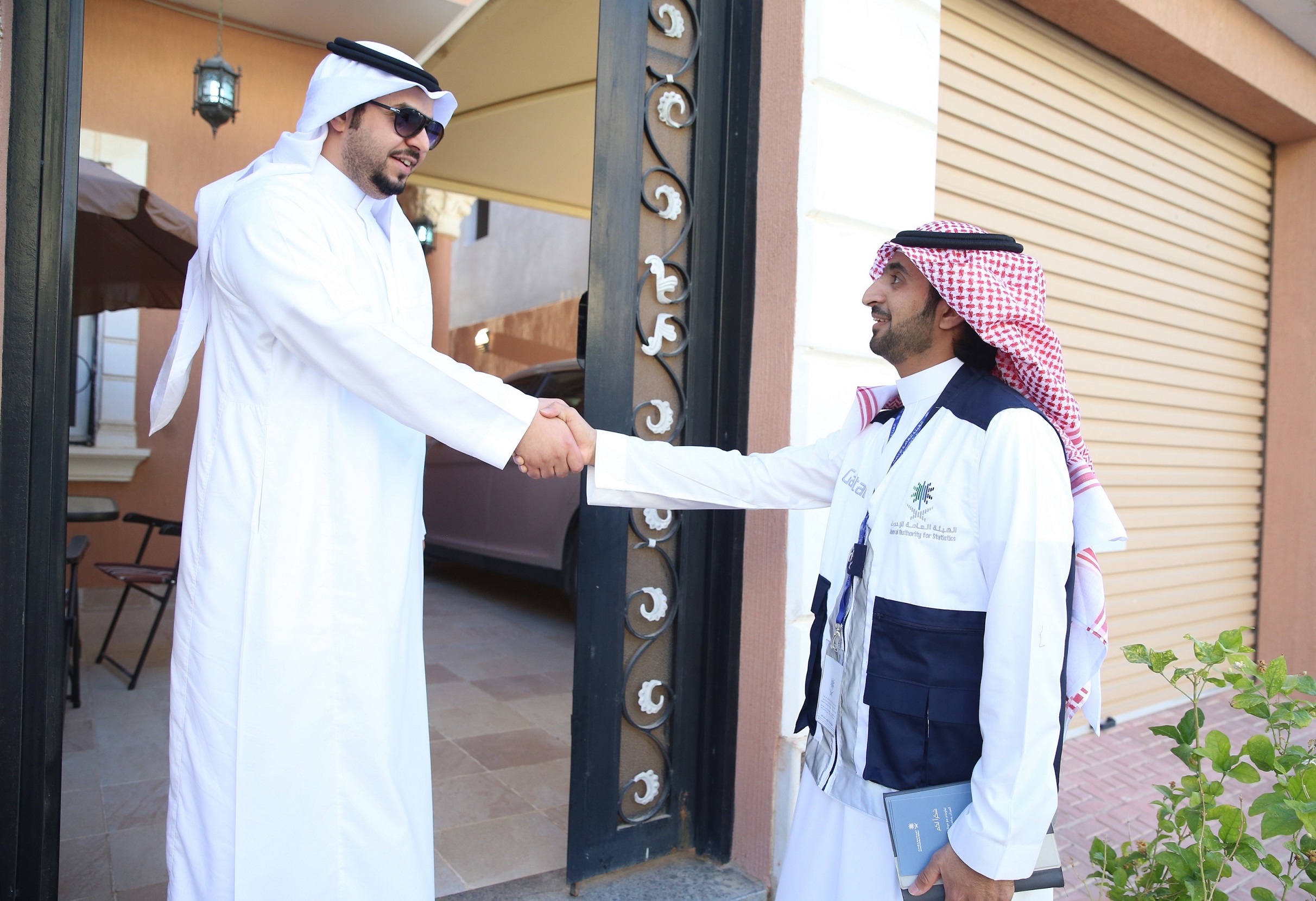
الهيئة العامة للإحصاء تطلق مسح أسري سنوي حتى العام 2020
In a Step Towards qualitative statistical work to measure the economic and social impacts on the household
Gastat launches an annual household survey until 2020
The General Authority for Statistics (GaStat) started last week to visit 24,000 households in all regions of the Kingdom to conduct a survey aimed at households to build economic and social indicators. GaStat called upon all citizens and residents to cooperate with statisticians working in the field in the different 13 regions of the Kingdom of Saudi Arabia, including their cities and governorates. The visits of more than 355 statisticians to households will continue until 8 Sha'ban 1438H corresponding to 4 May 2017.
HE Dr. Fahad Altekhaifi, President of GaStat, explained that this survey is an extension of the tools of supporting decision-makers in developing the study of the economic and social status of households periodically to support the national transformation program by providing economic indicators and readings for households on a yearly basis. In addition, it will track and evaluate the changes in the social and economic indicators of households and their consumption behavior until 2020. His Excellency also explained that the Household Economy Survey is one of the new products that have been designed in cooperation with some government entities in line with international practices in such surveys to meet the needs of general economic changes.
Therefore, the survey covers eight main aspects: household list data, education data, labor data, data on housing characteristics, income and expenditure data, living conditions data, household economic activity data, and future household outlook data. This survey is a complementary to other surveys implemented by Gastat. He also added that the results of the survey will be published in next August.
On the other hand, GaStat met with a number of Household Economy Survey beneficiary government entities:" Ministry of Health, Ministry of Labor, Ministry of Education, Ministry of Trade and Investment, Ministry of Finance, Ministry of Labor and Social Development" when launching field work, in order to introduce the survey and its expected results, describing it as one of the most important national surveys.
GaStat stressed that all data are treated as an information base for decision-makers in all relevant government agencies, which benefit citizens and residents. Gastat also notes that all statistical researchers hold official badges and are officially authorized to collect data to be stored and kept confidentially in accordance with general statistics system issued by the Council of Ministers. GaStat also made available through its official website www.stats.gov.sa the opportunity to access the field research forms on which the data will be collected. All households and establishments can contact the toll free number 8001240440 for any inquiries about this work or any other inquiries.
It should be noted that the General Authority for Statistics follows the international standards approved in the selection of the sample for all its statistical work as part of the statistical society, which is selected according to the of statistical sampling methods and is required to be representative of the society being studied and include the characteristics of the community until the results are published as official statistics and published through its website.
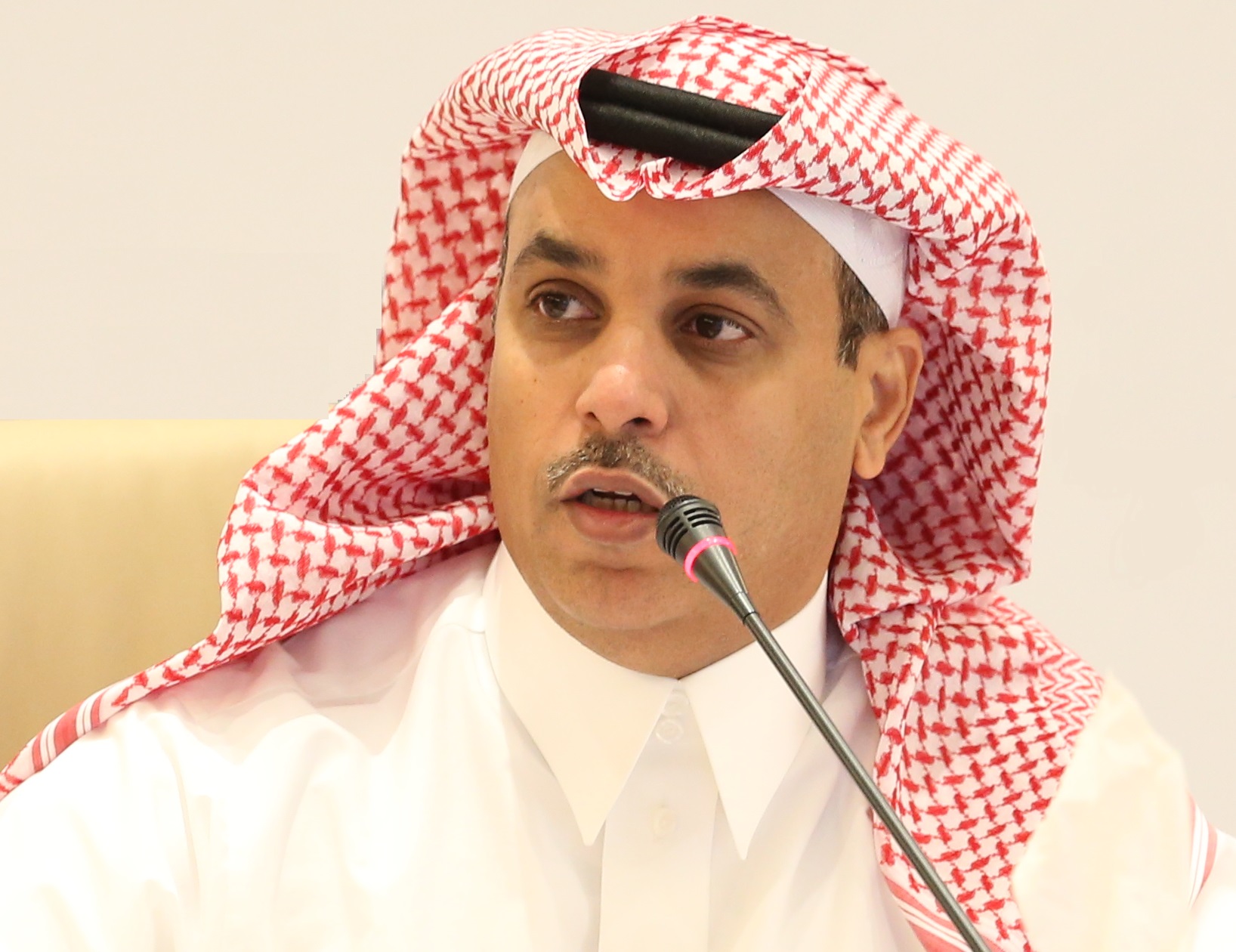
السعودية " الثانية عربياً والثامن والثلاثين عالمياً " ضمن الدول ذات التنمية البشرية المرتفعة جداً
According to the human development report issued by a UN program with a remarkable progress
Saudi Arabia is “the second country on the Arab world level and the thirty eighth internationally” within the very high-level human development countries
Saudi Arabia registered the second rank on the Arab world level and the thirty eighth internationally within the very high-level human development countries according to the human development report issued by the UN developmental program 2016.
Dr. Fahad bin Sulaiman Altekhaifi, GaStat president, clarified that Saudi Arabia has reached that remarkable progress which was reflected in the human development report issued by the UN developmental program 2016. He added, Saudi Arabia was classified within the countries that have the highest levels of human development.
His Excellency assured that the report is one of the annual reports issued by the UN developmental program since 1990. In addition to the main topics it discusses and resolves annually, the program includes many statistical tables of various indicators, the most important of which is a table that contains the human development guide classified by the level of human development all over the world. This guide is considered a standard that summarizes all achievements in the field of development through three main dimensions: individual health life, knowledge acquisition, and the proper living standard.
He indicated that this improvement in the Saudi level of human development is continuous one. During the past three years, Saudi Arabia registered the (39th) rank last year, the (55th) rank in 2010, and the (77th) rank in 2005. This progress is attributed to the noticeable improvement in all elements of the human development guide which are represented in the expected age of birth, the expected average of studying years which means the expected number of studying years that a child is expected to spend since he/she starts going to school, supposing that the rates of this process by age groups remain stable during all times. The guide elements also include the gross national income per capita which is calculated by the purchase power rate in Dollar.
It is worth mentioning that the human development report divides the world into four groups by value of human development guide’s indicator. Countries with low-level human development have a value of (0R550), whereas countries with intermediate-level human development, their value ranges between (0R550) and (0R699). However, countries with high-level human development have a guide value that ranges between (0R700) and (0R799), and countries with a very high-level of human development have a value of (0R800) or more. The Saudi indicator mentioned in the 2016 report registered (0R847).
Dr. Fahad stressed that this report reflects the level of human development that Saudi Arabia witnesses in many fields. It shows the exerted efforts on many levels. These efforts were achieved as a response to the continuous directions of the custodian of the two holly mosques, his crown prince, and his deputy crown prince. It also reflects the goals upon which the 2030 Saudi vision is made, the vision that represents a promising document that aims at achieving the sustainable development and coping with all rapid developmental changes internationally.
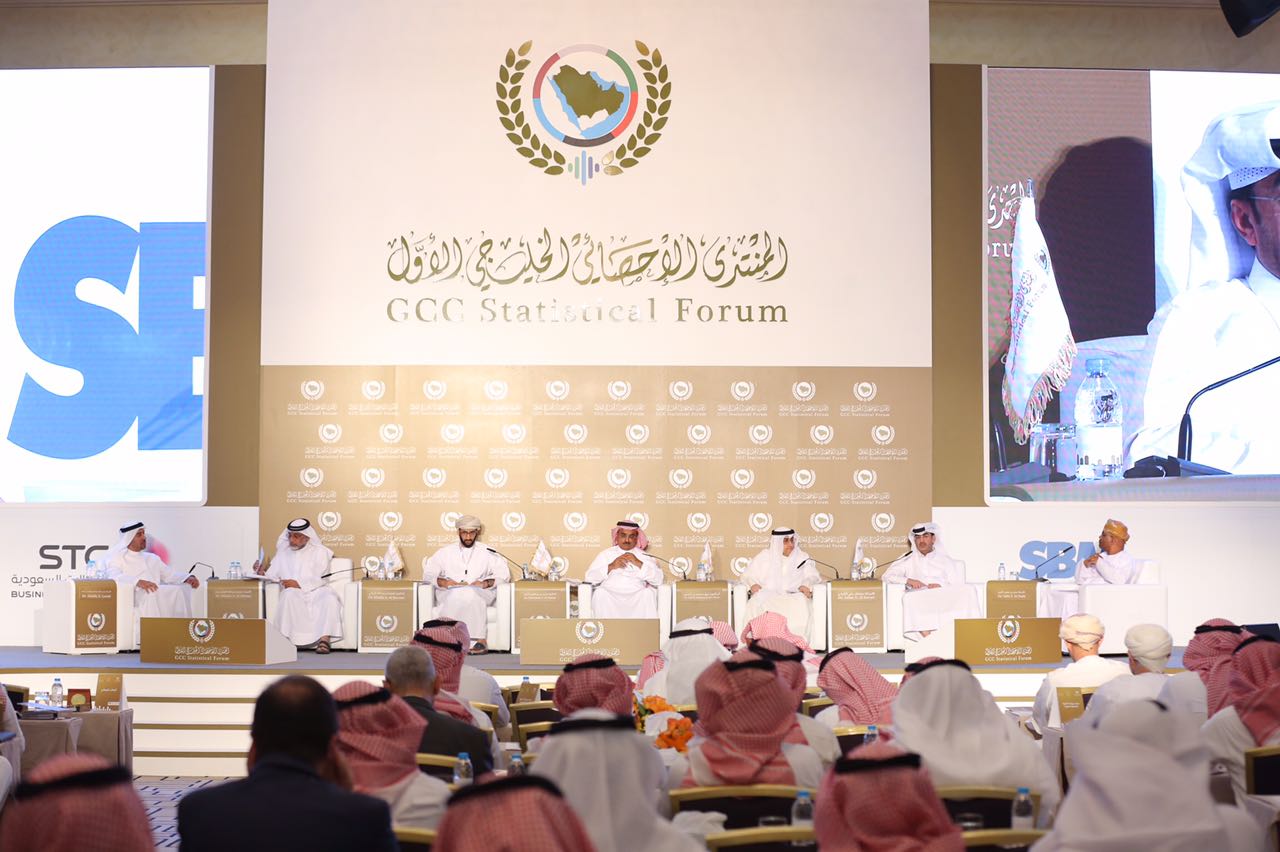
الرياض تعلن 14 توصية في ختام المنتدى الإحصائي الخليجي الأول
Based on 3 Strategic Pillars
Riyadh Announces 14 Recommendations at the Conclusion of the First GCC Statistical Forum
The First GCC Statistical Forum held in Riyadh concluded by announcing 14 recommendations, co-drafted by decision and policy makers, academia, private sector, in addition to the leaders of the statistical data and information authorities, systems and centers in the GCC countries and international and regional organizations. The participants in the Forum, organized by the General Authority for Statistics in Saudi Arabia and the GCC Statistical Center, stressed the importance, moving forward, of strengthening and increasing the effectiveness of the ongoing efforts in the various related fields, based on three strategic pillars (Partnerships, Development and Harmonization, and Resources).
The participants also agreed on the importance of holding the Forum on a regular basis ever two years, to monitor progress and achievements in the areas of joint work and collaboration, and discuss the latest developments in the demand for and the production and dissemination of official statistics. The next forum will take place, in Muscat, in March 2019.
This announcement came along with the Forum participants’ acknowledgment of the extra burden put on the national statistical authorities, centers and systems by the ever increasing and evolving demand for better quality statistics.
The recommendations on the Partnerships Pillar stressed the need to (i) Strengthen the cooperation and dialogue mechanisms between statistics users and producers at the national level, so that the needs of users are met and the priorities are set in a better way; (ii) Enhance coordination and cooperation between producers of statistics in countries, to share knowledge and best practice, avoid duplication of efforts, and increase the quality of official statistics; (iii) Improve coordination and cooperation at the regional and international levels, to keep pace with and ensure contribution to and benefit from relevant developments, and to exchange expertise and experiences; (iv) Explore the potential of public private partnerships in statistics, to increase the frequency of data and develop new data sources; and (v) Foster collaboration and partnerships with the academic community in the GCC region, to serve a wide array of objectives including improving statistical literacy, adding value to statistical production, increasing the correct use of data, and strengthening training and capacity development.
In terms of the Development and Harmonization Pillar, the participants recommended to (i) Improve the quality and comparability of official statistics, to meet the needs of users; (ii) Incorporate contemporary international statistical standards and classifications; (iii) Enhance the use of administrative registers to produce official statistics; (iv) Take full advantage of modern statistical tools and technologies; and (v) Promote the correct use of statistics and statistical awareness and culture in society.
Finally, regarding the Sources Pillar, the participants’ recommendations included to (i) Operate statistical agencies in an efficient, cost-effective and results-based manner; (ii) Attract and keep qualified GCC nationals in the statistical work; (iii) Increase the effectiveness and coverage of capacity development programs; and (iv) Explore alternative sources of funding and cost sharing outside the framework of official statistics including with the private sector.
For the recommendations of the first Gulf Statistical Forum | Press here
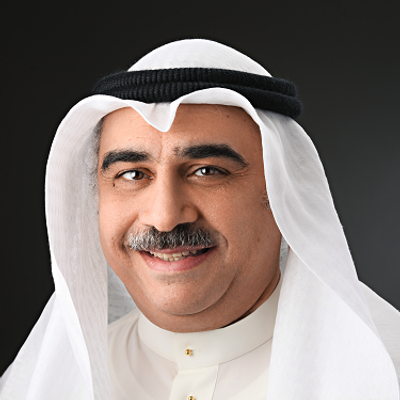
برعاية خادم الحرمين الشريفين معالي وزير الاقتصاد والتخطيط يفتتح فعاليات المنتدى الإحصائي الخليجي
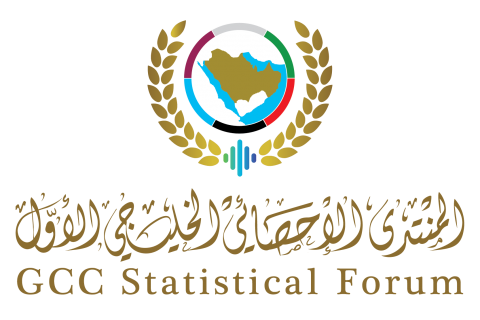
27 جناح علمي وتوعوي في المعرض المصاحب لفعاليات المنتدى الإحصائي الخليجي الأول
27 Scientific and Awareness-raising Booths in the Exhibition accompanying the First GCC Statistical Forum
The Forum events which will be held in Riyadh under the theme " enhancing statistical collaborations to support economic policies and sustainable development in the GCC region", under the patronage of the custodian of the Two Holly Mosques king Salman bin Abdulaziz Al Saud, and organized by the general authority for statistics and the GCC statistical center on 21-23 Jumada second 1438 H corresponding to 20-22nd of March 2017, will be accompanied by an exhibition that contains 27 scientific and awareness raising booths, in collaboration with the GCC countries and the GCC statistical center, in addition to a number of establishments specialized in statistical and informational technology.
Mr. Taiseer Almofarrej, the official spokesman of the General Authority for Statistics, stressed that the Forum welcomes visitors such as , specialists, academia, students and government entities leaders to know more about statistical methodologies in different fields; economic, social, energy and natural resources, open data, statistical awareness and sustainable development.
The forum which will gather 40 speakers from the gulf region and other countries, data producers and users, and people from the academic sector, focuses on main axes which are: statistical data and information request resulted from the national developmental tracks, sustainable development agenda and international economic issues, discussing the provision of statistical products and services to support the national developmental tracks and sustainable development in the GCC region, in addition to discussing the statistical collaborations between data producers and users to support the economic policies and sustainable development in the GCC region.
The events of the Forum will start with 4 sessions within two days, the sessions will start with discussing the first axe which is about statistical data and information request: the request from an international prospective and focusing on the international issues and their impact on policies and reforms all over the world in general and in the gulf region in particular. In addition to data needs and gaps, it will also discuss request from a national and regional perspective, a general session titles" producing and publishing statistics: the strategic motives of the national statistical entities' works", followed by a general session about the third axe which is associated with collaborations " next steps: towards sustainable mechanisms and framework for cooperation between users and producers". Along with the forum activities, 6 workshops will be held: the first will discuss measuring the progress in achieving sustainable development goals, the second is about enhancing statistical knowledge. As for the third, it will be about the statistical media. In the fourth workshop, the participants will get to know the mechanisms of statistics development by using information and communication technologies. However, the fifth will discuss data revolution which will present cooperation between Arab countries to get benefited from data revolution in enhancing the production and publishing of statistics. After that, two presentations will be presented by one of the GCC countries and the GCC statistical center about the preparations and challenges. Regarding the last workshop, it will discuss the collaborations between the public and private sectors in the field of statistics.
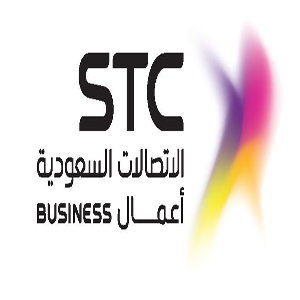
STC أعمال الراعي التقني لفعاليات المنتدى الإحصائي الخليجي
STC Business technical sponsor for the Gulf Statistical Forum
Under the Royal hospice of the Custodian of the Two Holy Mosques, King Salman bin Abdulaziz Al Saud - may God protect him - and with the organization of the General Authority for Statistics and GCC Statistical Center, STC Business will participate, as an activities technical sponsor, in the Gulf Statistical Forum, which will be held under the theme "Enhancing Statistical partnerships to support economic policies and sustainable development in the GCC countries.", at the Marriott Hotel in Riyadh during the period from March 20th to 22nd, 2017.
The Forum will bring together 40 GCC and international speakers to discuss strengthening the statistical partnerships in view of supporting economic and development policies. They will discuss several key issues which are: requirement for data and statistical information ensuing from national development trends, the agenda for sustainable development and emerging global economic issues, provision of statistical products and services to support national development trends, and sustainable development in the GCC countries, in addition to conducting research on enhancing the statistical partnerships between users and producers of data to support the economic policies in the GCC countries.
STC Business pavilion accompanying the forum, will display a group of communication services and information technology solutions, with an explanation of the most important advantages and benefits that contribute to the success of statistical work and support digital transformation in the domestic and the Gulf region.
This sponsorship comes within STC Business endeavor to support and meet the requirements and needs of their customers in both public and private sectors, through a variety of connectivity products based on mobile and fixed networks technology, providing integrated digital solutions, cloud computing , and managed services.
STC Business Unit provides solutions and services, telecommunications and information technology in a way that meets the government and companies demands and requirements. This is carried out through the most advanced data centers distributed around the Kingdom. These centers are connected through a network of optical fibers whose length attains more than 147, 000 kilometers, and are supported with a mobile network covering 96% of the populated areas in KSA, and uses technologies of the Second and Third Generation, while 96% of the network uses the Fourth Generation technology known as LTE. These national networks are linked to the world through a number of cross-border land and sea cables and an Internet gate which is the largest in the MENA region, where its communication capacity attains 1.5 Terabit / sec. and passes 12 Beta Bytes of data per day.
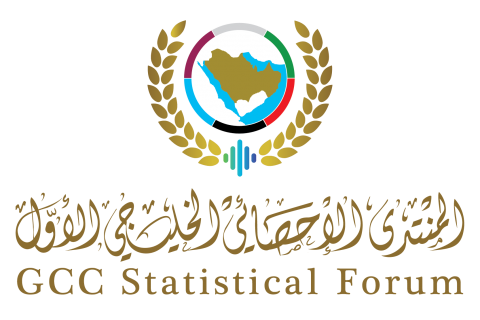
8 أيام تفصل عن انطلاق فعاليات المنتدى الإحصائي الخليجي الأول
8 days until the beginning of the 1st GCC statistical forum events
After 8 days, the 1st GCC statistical forum events will begin in Riyadh under the theme " enhancing statistical collaborations to support economic policies and sustainable development in the GCC region". The forum will be under the patronage of the custodian of the two holly mosques king Salman bin Abdulaziz Al Saud, and organized by the general authority for statistics and the GCC statistical center on 21-23 Jumada second 1438 H corresponding to 20-22nd of March 2017.
The forum, in which there will be 40 speakers from the gulf region and other countries, other people who are specialized in statistics such as data producers and users, and people from the academic sector, focuses on main axes which are: statistical data and information request resulted from the national developmental tracks, sustainable development agenda and international economic issues, discussing the provision of statistical products and services to support the national developmental tracks and sustainable development in the GCC region, in addition to discussing the statistical collaborations between data producers and users to support the economic policies and sustainable development in the GCC region.
The first day will witness the opening event. Many political personalities will attend such as ministers, GCC general secretariat leaders, ambassadors, statistical organizations heads, international and regional organizations representatives, statistical sector specialists, media, and other participants.
The forum events will begin with 4 sessions on the first two days. On these sessions, the first axe will be discussed from an international perspective which is about statistical data and information request. Also, the sessions will discuss the international issues and their impact on the policies and reforms all over the world and on the gulf region in particular. Data needs and gaps will be taken into consideration too. Data request will be discussed also from a national and regional perspective. There will be a general session titled " statistics production and publication: the strategic motives of the national statistical organizations works". It will be followed by another general session that discusses the third axe which is about collaborations " next steps: towards sustainable framework and mechanisms for cooperation and dialogue between users and producers".
Along with the forum events, there will be 6 seminars; the first will discuss measuring the progress in achieving the sustainable development goals, the second is about enhancing the statistical knowledge. Whereas the third will focus on statistical media, and the fourth is about the mechanisms od statistical development by using information and telecommunication technologies. On the fifth seminar, data revolution will be discussed, it will present the cooperation between Arab countries to benefit from data revolution in enhancing statistics production and publication. After that, there will be two presentations about the preparations and challenges, they will be presented by one of the GCC countries and the GCC statistical center. As for the last seminar, collaborations between the public and private sectors in the field of statistics will be discussed.
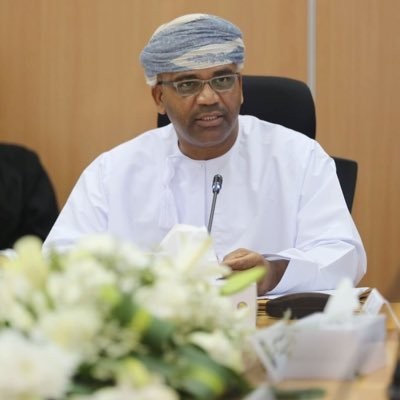
لأول مرة.. انطلاق المنتدى الإحصائي الخليجي في العاصمة الرياض.. نهاية الشهر الجاري
Gathering 40 gulf and international speakers, discussion sessions and workshops
For the first time… the launching of the GCC Statistical Forum in Riyadh.. the end of this month
Sabir Al Harbi: the patronage of King Salman confirms his interest in reinforcing GCC joint work
Hessa AlJanahi: the meeting of data producers and users will contribute in building sustainable frameworks and mechanisms for cooperation
The Director General of the Statistical Centre for the Cooperation Council for the Arab Countries of the Gulf (GCC-Stat), Mr. Sabir bin Said Al Harbi, affirmed that the patronage of the Custodian of the Two holy Mosques of the first statistical forum which will be held later this month confirms his interest in reinforcing GCC joint work, enabling the cooperation in the development and economy files, and linking and coordinating between GCC countries in all fields.
Mr. Al Harbi stressed on the importance of the forum which will be held for the first time, gathering 40 gulf and international speakers with data producers, data users, and the academic sector. They will discuss many main axes like: the request of statistical data and information that results from the national- developmental tracks, sustainable development agenda, and international economic issues. They will also discuss the provision of statistical data and services to support the national- developmental tracks and sustainable development in the GCC region. In addition to discussing the main theme which is enhancing statistical collaboration between data users and producers to support economic policies and sustainable development in the GCC region. The forum will be under the theme " enhancing statistical collaborations to support economic policies and sustainable development in the GCC region" under the patronage of the Custodian of the Two Holly Mosques king Salman bin Abdulaziz Al Saud, and organized by the general authority for statistics and GCC- Stat.
The Director General of GCC-Stat pointed that the forum comes in a time when current global political and economic developments forms a challenge in the Gulf Region, which leads us to guard by precise economic development trends that fit global changes, especially statistical wise. This appears in the importance of the existence of good, reliable, classified and timely data that measures the progress towards achieving economic growth and diversifying its sources.
On the other hand, the GCC-Stat consultant, Mrs. Hessa AlJanahi, said that the forum is considered one of the manifestations of GCC governments interest to building sound national statistics derived from strategic motivations that serve the goals of 2030 sustainable development.
Mrs. AlJanahi predicted that the meeting of data producers, data users and relevant sectors will contribute in building sustainable frameworks and mechanisms for cooperation and creating strong collaborations in order to bridge the gap between statistics producers, including, statistical systems and statistics users from government and public entities, academics, researchers, or other users.
The forum will start with the opening on the first day. Many politicians will attend such as ministers, GCC secretariat leaders, ambassadors, statistical organizations presidents, national and international organizations representatives, statisticians, media specialists, and other participants.
In the next two days, the sessions will start with discussing the first axe which is about statistical data and information request: the request from an international prospective and focusing on the international issues and their impact on policies and reforms all over the world in general and in the gulf region in particular. In addition to data needs and gaps, it will also discuss request from a national and regional perspective, a general session titles" producing and publishing statistics: the strategic motives of the national statistical entities' works", followed by a general session about the third axe which is associated with collaborations " next steps: towards sustainable mechanisms and framework for cooperation between users and producers". Along with the forum activities, 6 workshops will be held: the first will discuss measuring the progress in achieving sustainable development goals, the second is about enhancing statistical knowledge. As for the third, it will be about the statistical media. In the fourth workshop, the participants will get to know the mechanisms of statistics development by using information and communication technologies. However, the fifth will discuss data revolution which will present cooperation between Arab countries to get benefited from data revolution in enhancing the production and publishing of statistics. After that, two presentations will be presented by one of the GCC countries and the GCC statistical center about the preparations and challenges. Regarding the last workshop, it will discuss the collaborations between the public and private sectors in the field of statistics. Statistical sector interested individuals can register to attend the forum events by visiting the website through the link: https://www.stats.gov.sa/gccsf/en
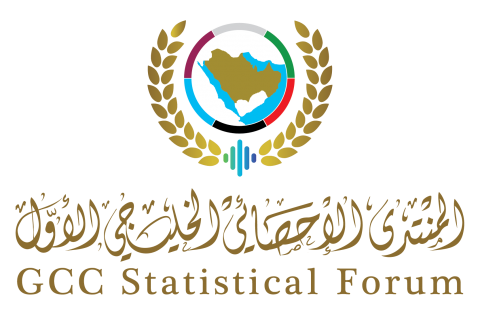
40 متحدثاً خليجياً ودولياً يناقشون تعزيز الشراكات الإحصائية لدعم السياسات الاقتصادية والتنمية.. في مارس المقبل
Within the activities of the first GCC statistical forum
40 speakers from the gulf and other regions discuss enhancing statistical collaborations to support economic policies and development, next March
GCC statistical forum, which will be held in Riyadh from 21st to 23rd of Jumada 2nd corresponding to 20th to 22nd of March 2017, is receiving 40 speakers from the gulf and other regions of the world, in addition to several people who are interested in statistics. They all will be gathering in a forum held for the first time under the theme " enhancing statistical collaborations to support economic policies and sustainable development in the GCC region" under the patronage of the two holly mosques king Salman bin Abdulaziz Al Saud, and organized by the general authority for statistics and GCC statistical center.
The forum will gather many people who deal with statistics such as: data producers, data users, and the academic sector. They will discuss many main axes like: the request of statistical data and information that results from the national- developmental tracks, sustainable development agenda, and international economic issues. They will also discuss the provision of statistical data and services to support the national- developmental tracks and sustainable development in the GCC region. In addition to discussing the main theme which is enhancing statistical collaboration between data users and producers to support economic policies and sustainable development in the GCC region.
In details, the opening of this forum will be on the first day. Many politicians will attend such as ministers, GCC secretariat leaders, ambassadors, statistical organizations presidents, national and international organizations representatives, statisticians, media specialists, and other participants.
On the next day, the sessions will start with discussing the first axe which is about statistical data and information request: the request from an international prospective and focusing on the international issues and their impact on policies and reforms all over the world in general and in the gulf region in particular. In addition to data needs and gaps. The session will be headed by Mr. Abdulaziz Alfuraih, vice governorate of the Saudi Arabian monetary fund. Prof. many speakers will start on that day such as: Enrico Guvannini, economic statistics professor in Roma university, Italy, Mr. Paul Schreyer, vice director of statistics in OECD, Mr. Jose Roberto Rosales, deputy director of statistics department in IMF, and dr. Khalfan bin Mohammed Albarwani, vice executive president of banking operations, research, and statistics in Oman central bank.
As for the second session, it will be headed by dr. Johannes Jütting, director of Paris secretariat in the OECD. They will discuss request from a national and regional perspective. The participants in this session include: de. Salem bin Nasser Alqudhai'e, vice minister of economy and planning, Mrs. Faridah Abdulrahim Khanji, director of analysis and assessment department in the office of his highness the president of ministers' cabinet in Bahrain, ambassador. Ashok Nigam, UN Resident Coordinator and UNDP Resident Representative for the Kingdom of Saudi Arabia, Mr. Khalifah bin Saeed Alabri, assistant general secretary of economic and developmental affairs in the GCC general secretariat.
On the third day, the forum works continue with a session titles" producing and publishing statistics: the strategic motives of the national statistical entities' works". This session will be headed by ambassador. Mossa Kolaklikaya, general director of statistical, economic, and social research and training in the Islamic countries (Ankara center). The participants also include: Mr. Taiseer bin Mohammed Almofarrij, from the general authority for statistics in Saudi Arabia, Mr. Mohammed Hassan ahli, executive director of statistics and national data sector in the federal competitiveness and statistics authority, UAE, Mrs. Sawsan Dawood Allawati, general director of the information directory in the national statistics and information center, Oman, and dr. Rashoud bin Mohammed Alkhuraiyef, supervisor of demographic studies center in king Saud university.
After that, a general session about the third axe which is associated with collaborations will begin " next steps: towards sustainable mechanisms and framework for cooperation between users and producers" headed by Mr. Saber bin Saeed Alharbi, the general director of GCC statistical center, with the participation of the forum workshops heads to discuss the workshops results and recommendations according to the forum three axes: data request, producing and publishing data, and collaborations between statistics users and producers. At last, a final session will start to announce the forum recommendations.
Along with the forum activities, 6 workshops will be held: the first will discuss measuring the progress in achieving sustainable development goals, the second is about enhancing statistical knowledge. As for the third, it will be about the statistical media. In the fourth workshop, the participants will get to know the mechanisms of statistics development by using information and communication technologies. However, the fifth will discuss data revolution which will present cooperation between Arab countries to get benefited from data revolution in enhancing the production and publishing of statistics. After that, two presentations will be presented by one of the GCC countries and the GCC statistical center about the preparations and challenges. Regarding the last workshop, it will discuss the collaborations between the public and private sectors in the field of statistics.
At the end of the forum works, a session will be held and headed by dr. Fahad bin Sulaiman Altekhaifi, GaStat president. In this session, the forum recommendations will be announced regarding enhancing collaborations between statistical data and information producers and users on the national and regional levels. Then, a concluding speech will be delivered by GCC statistical center and the general authority for statistics.
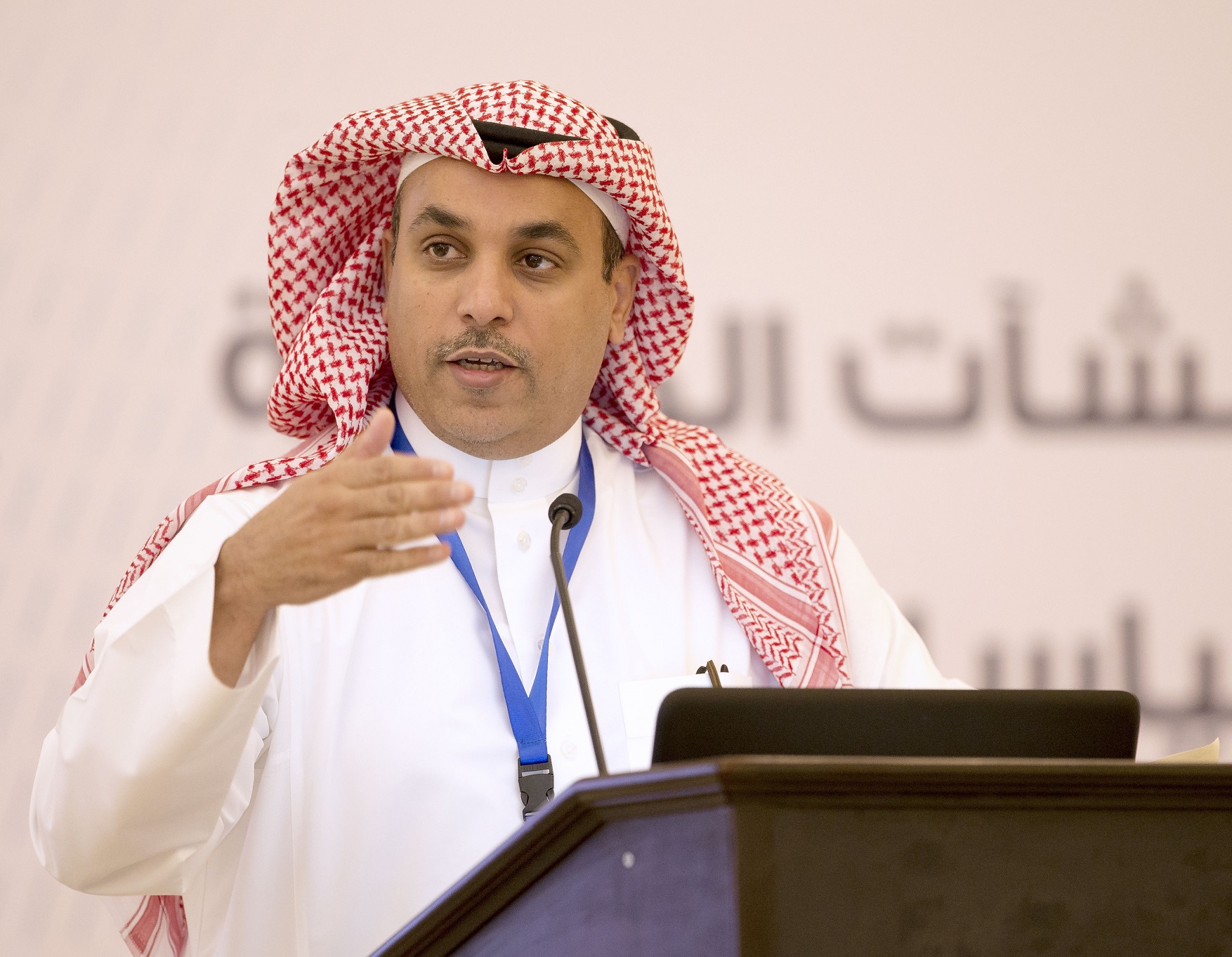
تشاركية بين " الهيئة العامة للإحصاء " والقطاع الخاص لتطوير العمل الإحصائي
announcing (6) new economic surveys to support development
Collaboration between GsStat and the private sector to develop statistical work
GaStat revealed new economic surveys to be implemented this year and next year. These surveys aim at fulfilling the development needs, they include: insurance activity survey, direct foreign investment survey, intermediate and small establishments survey, retail activity survey, non-profit sector survey, and tourism survey.
This was mentioned in the second workshop held by GaStat yesterday (Monday) 13th February 2017 in Jeddah. HE dr. Fahad bin Sulaiman Altekhaifi, GaStat president, said that the private sector is an essential partner in the national development. He added, it integrates all public sectors and institutions in a way that strengthens the national economy. The collaboration between "statistics" and the private sector is part of the developmental movements which aim at achieving the 2030 Saudi vision and representing that with indicators that reflect the progress in the achievement of this vision. The role of GaStat, statistical national commission, and the statistical sector in general became more important now as the need for accurate statistical data, effective indicators, and measurement tools increased. Dr. Fahad indicated that one of the most important stages that GaStat works on these days is meeting the clients' needs whether from the public or private sector. It also works on establishing effective collaborations locally, nationally, and internationally with related parties. In addition to creating indicators necessary for current and future needs. GaStat works with its partners on unifying the information sources, facilitating their access, and providing innovative statistical products with international standards.
On the other hand, Mrs. Kholoud Aldakhail, the national statistical commission chairman, stated that the commission was established under the umbrella of the council of Saudi chambers based on the Saudi chambers board resolution number 13 /88/m issued in 15/6/1437 H as response to the ministry of economy and planning and GaStat request. This reflects GaStat initiative to make the private sector a collaborative sector. She asserted that the role of this committee, which include 23 members who work in the field of statistics, data, and information, is represented in the coordination with Saudi chambers of commerce all over Saudi Arabia. The coordination will be about statistical work activation, data exchange, and proposing methods to enhance the statistical work impacts on the private sector. Furthermore, it deals with elaborating the use of statistics in private sector, deepen relations between GaStat and Saudi chambers of commerce.
The workshop discussed two main themes; the requirements of data users in the private sector as one of the statistical sector components, determining required additional data by activity, and the proposed methods to develop the mechanism of data collection from the private sector institutions. GaStat has presented the economic surveys and the new surveys that will be implemented by them during these two years. They also presented the six tracks based on which the authority work which can be summarized in; a work strategy about the authority clients and partners to fulfill the actual need of statistical products, then developing these products and services and improving the statistical operations and methodologies. Also, raising the level of information technology and digital infrastructure to enable products to start from a strong base that can be adapted with any change. Moreover, focusing on raising statistical awareness, and building capabilities in the statistical field. In addition to structuring all GaStat tasks and departments.
At the end of the workshop, dr. Fahad expressed his thanks to all the participants. He asserted that the workshop outputs will contribute in enhancing the effectiveness of the decisions made by the private sector and its policy makers for the citizen's advantage and society economies which enhance his role in the domestic product growth, and guarantee making proper decisions based on accurate data to facilitate measuring their result and reflections.
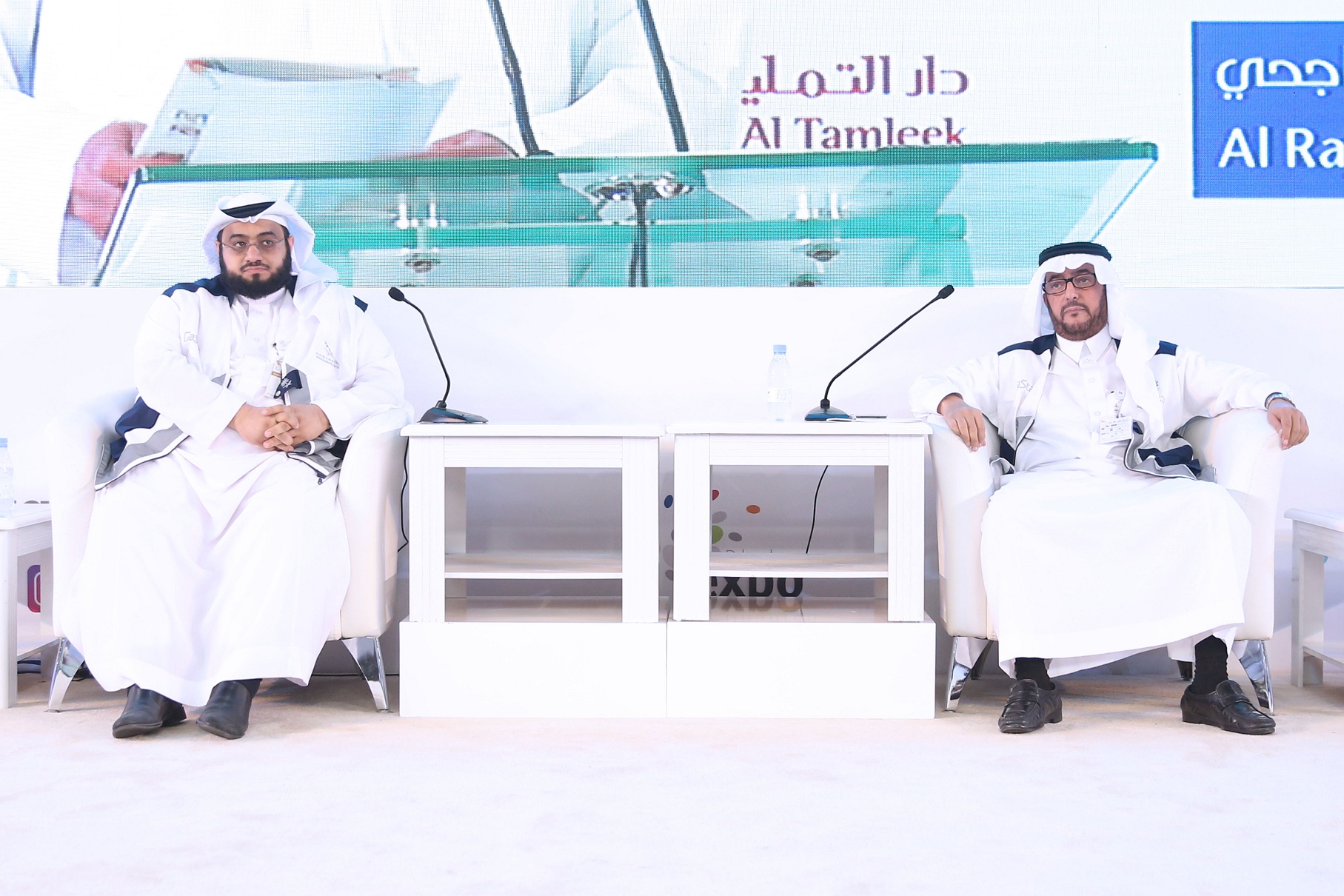
الهيئة العامة للإحصاء تطلق مؤشر الرقم القياسي للعقارات
Based on ministry of justice registry data
GaStat launches real estate index indicator
On Monday 18 Rabe'a second 1438 H corresponding 16 January 2017, GaStat launched the Saudi real estate index indicator. This indicator is based on available registry data of the ministry of justice that is about real estate transactions in 2015 and 2016. GaStat described this indicator as an essential tool that supports entities which make economic and statistical decisions associated with real estate price movements and future expectations during different periods of time. The indicator includes three main sectors composed of many real estate classes: residential sector ( piece of land, building, villa, apartment, and house) , commercial sector (piece of land, building, shop, and commercial center), and agricultural sector ( agricultural lands).
Real estate price index indicator showed a decrease in the Saudi real estate prices in 2016 compared to 2015 and 2014. The indicator registered a decrease of (6.1%) compared to 2015. Whereas it registered a decrease of (8.5%) compared to 2014.
During the fourth quarter of 2016, this indicator recorded a decrease of ( 3.5%) compared to the previous quarter. However, it recorded a decrease of (8.7%) compared to the same quarter of 2015.
The report attributed the decrease in the fourth quarter of 2016 (compared to the previous quarter) to the decrease in all composing sectors: commercial sector (4.1%), residential sector (3.4%), and agricultural sector (0.3%).
On the other hand, the decrease in the fourth quarter of 2016 (compared to the same quarter of 2015) to the decrease in all composing sectors: commercial sector (12.3%), residential sector (7.4%), and agricultural sector (1.1%).
GaStat indicated in a workshop ,held in " Restatex " exhibition in Dhahran city, that : as an official reference of statistics and an organizer of statistical sector in Saudi Arabia, one of Gastat tasks is follow up the price movement of real estate composing units and record the values of their transactions all over Saudi Arabia. In addition to monitoring their changes from time to time through the new statistical product " real estate price index" which relies on the data provided by ministry of justice. This represents the integration and cooperation between the different government entities which aim at moving sustainable development forward.
GaStat also stated that the new statistical product aims at founding distinct real estate statistical indicators that measure the Saudi real estate market performance and fill the gap of data in this sector. It is considered an essential tool that supports entities which make economic decisions in this field. This product's data benefit those who are interested in the economic and statistical analysis of real estate prices and the future expectations during different periods of time. GaStat has issued a complete bulletin about this index and its details on its website.
It is worth mentioning that GaStat has announced 45 new statistical products as a first stage of the new products which included economic, social, demographic, Umrah , and labor market statistics. In addition to energy, knowledge, environment, culture, sport, entertainment, safety, and security statistics.
Download: Real Estate Price Index Q4 2016 (PDF)
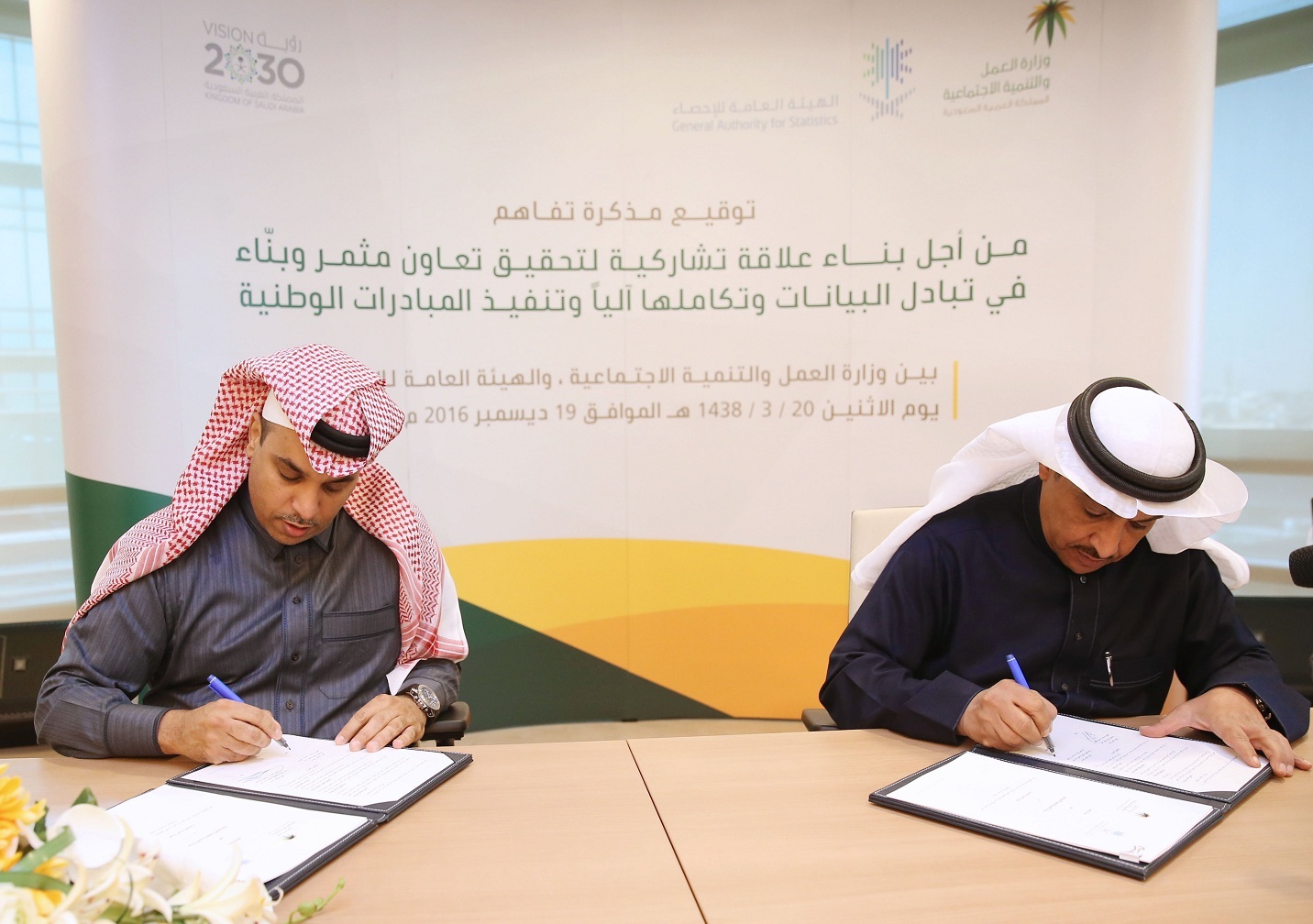
الهيئة العامة للإحصاء : نعمل على تطوير بيانات سوق العمل لدعم متخذي القرار
Signed a joint memorandum of understanding with the Ministry of Labour and Social Development
GaStat: We work on developing data of labour market to support decision makers
On Monday 20 Rabī‘ al-awwal,1438 corresponding to December 19, 2016 , GaStat signed a memorandum of understanding to develop electronic data exchange and integration and the implementation of a number of joint national initiatives relevant to the data of labour market in the Kingdom of Saudi Arabia. The national Labour Market Observatory and the "Labour Market bulletin" are considered the main outputs of this memorandum.
Mr. Taiseer Almofarrej, GaStat's official spokesman, clarified that the joint work in the field of data exchange with the Ministry of Labour and Social Development is a work in progress, and that the memo signed today by His Excellency Dr. Fahad Altekhaifi, GaStats President, and His Excellency the Deputy Minister of Labour and Social Development, Mr. Ahmad Saleh Alhomaidan in the framework of developing joint work, particularly after the merging of the Labour with Social Development is made to keep pace with the new changes in this field. Emphasizing on the importance of collaboration to provide statistical services that support decision makers and users by providing statistical data and information that is immediate, comprehensive, reliable and flexible in the best interest of beneficiaries either citizens or residents. Almofarrej stressed that the reinforcement of collaboration between GaStat and the Ministry is based on developing entire statistical products related to labour force, social development, establishments, statistical data exchange and integration and the integration of work at the relevant national observatories. The joint work also includes the unifying of standards, classifications and definitions of labour force, social development and establishments. The memorandum contributes in achieving the goals of the social development national strategy, the Saudi employment strategy, the tenth development plan, the privatization strategy and the national strategy of statistical development.
GaStat's official spokesman also asserted that most important outcomes of this collaboration is: the support of statistical data production and dissemination through surveys and administrative records carried out by GaStat and the Ministry on a regular basis, total coordination regarding labour force statistical data dissemination, facilitate cooperation in the exchange and flow of information, the development of Saudi labour market data system through providing a statistical database that is highly accurate to be used by decision makers, planners, researchers and relevant entities, unify efforts to ensure getting accurate statistical data for the most important indicators of the labour market and social development which contribute in the measurement of the 2030 Saudi Vision and the 2020 national transformation program, meet the requirements of the beneficiary entities, the collaboration in establishing a databases for GaStat which are not-for-profit, associations and charities, cooperative committees and social development centers, the collaboration and coordination to reinforce the specialized observatories currently in place, establish and prepare new statistical products specializes in the labour market and social development issues.
On the other hand, Mr. Taiseer Almofarrej clarified that GaStat is currently working in collaboration with the Ministry of Labour and Social development, Ministry of Civil Services, Human resources Development Fund and the General Organization for Social Insurance to develop the labour market data through the production of "Labour Market Bulletin" to be a periodic integrated bulletin that meets the demand for suitable trained and qualified manpower , and the supply side of the population of who are capable of working and willing to search for a job at certain period of time. The bulletin will be the updated version of the quarterly Labour force Survey results conducted by GaStat.
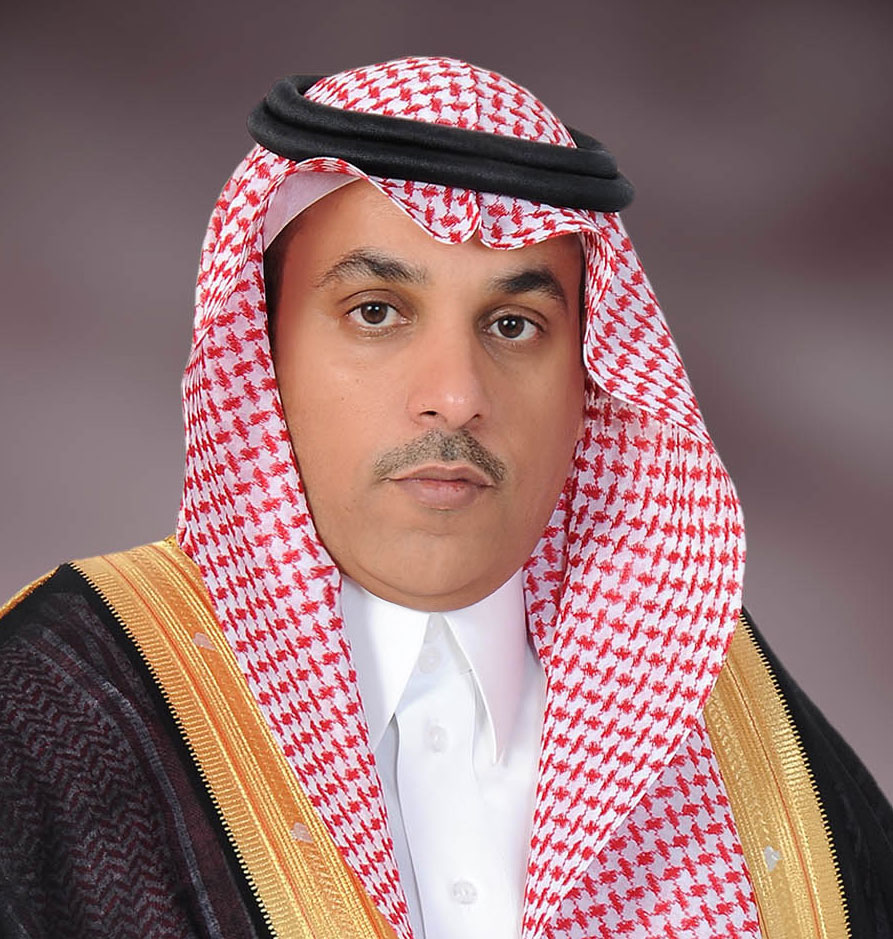
"المملكة" اتخذت خطوات فعالة لتنفيذ خطة أهداف التنمية المستدامة ٢٠٣٠ المقرَّة من الأمم المتحدة بما ينسجم مع خطط التنمية الوطنية وخصوصيتها
At the end of the 29th session of "ESCWA" held in Doha
Dr.Altekhaifi: the "Kingdom" has taken effective steps to implement the plan of the 2030 sustainable development goals approved by the United Nations in line with the national development plans
The United Nations Economic and Social Commission for West Asia (ESCWA) has recently ended its 29th ministerial session entitled "Implementing the Sustainable Development Goals of 2030 in Arab countries". Where the whole participants came together in order to implement the 2030 sustainable development plan, taking into account the particularities of the regions and its development priorities. The chairman of the Saudi Delegation participating in the Session, GaStat President, H.E. Dr. Fahad Altekhaifi mentioned that the Arab region countries faces multiple challenges in the implementation of the " the plan of the Sustainable Development Goals of 2030" approved by world leaders approximately year ago. These challenges include economical and social, political, developmental challenges. The most prominent of these challenges is the statistical challenges related to building indicators that measures the progress of the(17) goals and its (240) indices according to latest update in (May) 2016.
His Excellency explained that one of the most important factors that will help in the implementation of the sustainable goals plan is the state's ability to develop its development plans to adapt with the international plans, provided that they do not violate the Islamic shari'aa law and suits Saudi Arabia.
His Excellency assured that the Kingdom of Saudi Arabia worked in two tracks to implement the goals of the 2030 sustainable development approved by the United Nations: the first track is developing a governance to track the implementation of plan, and it was assigned to the Ministry of Economy and Planning who will be responsible of the management of this file, follow-up, coordinate with all government entities, assigning government entities to follow-up with the goals within their competence. In addition, GaStat builds these indicators through the expansion of statistical work implementation either through designing new statistical surveys, develop current surveys, or build indicators from the data collected from the records of other government entities. The second track that Saudi Arabia worked on is developing its national development plans (Saudi Vision 2030), and connect it to the global plans(sustainable development plans). The 20130 Saudi vision and its (13) programs such as 2020national transformation program, government entities restructuring, projects managing program and other programs, and its (24) indicators, took into account the compatibility with the goals of sustainable development.
On the other hand, Dr. Altekhaifi stressed the Doha announcement in the end session of the 29th meeting of ESCWA to invite all States to provide adequate support to update statistical systems to produce data necessary to measure the progress in achieving the goals of sustainable development. Furthermore, promote dialogue between policy makers and data producers and users to record progress in implementing national and international plans. Finally, support the initiatives of some Arab countries to for the adoption of national strategies for the development of statistics.
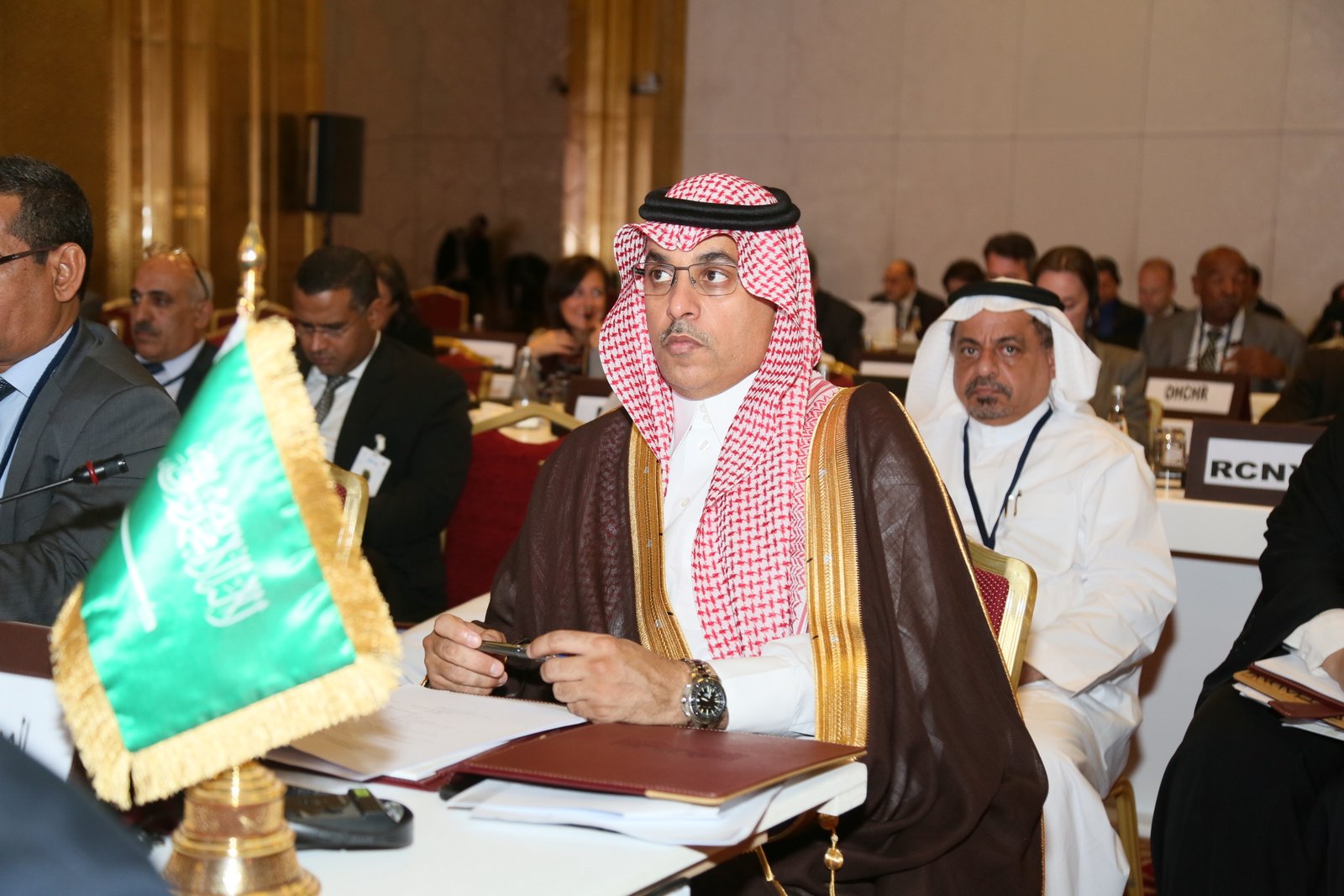
د. فهد التخيفي : الانتقال إلى مجتمع المعرفة يعزز التنمية المستدامة في المملكة
As the Chairman of the Saudi Delegation in the ESCWA Ministrial Session
Dr. Altekhaifi: the transition towards a knowledge-based society promotes sustainable development in the Kingdom
H.E. Dr. Fahad Sulaiman Altekhaifi, GaStat President, assured that the Kingdom of Saudi Arabia has completed remarkable steps towards achieving the millennium goals of sustainable development and has developed a strategy for total development under the framework of its 2030 Vision.
This came during the 29th ministerial session of ESCWA entitled "Implementing the Sustainable Development Goals of 2030 in Arab countries", held in Doha,Qatar. HE GaStat President chaired the Saudi delegation participating in this session. He clarified that the Kingdom has made deliberate steps towards achieving the goals of sustainable development, where all conditions are prepared to achieve its goals of growth rates, average income increasing, promote the transition towards a knowledge-based society. This can be made through multiple strategies such as those based on economic diversification, sovereign investment funds, support the private investment initiatives, invest in quality education, research and development, health facilities, public services, and international and regional agreements. He added that the entire government systems in the Kingdom works on increasing the development of national and regional institutions, and enhance coordination efforts, enhance the flexibility of public institutions in developing governance strategies.
On Tuesday, The United Nations Economic and Social Commission for West Asia (ESCWA) held its 29th session for senior officials, in the presence of representatives from member states and non-member states in international and regional organizations and committees.
ESCWA is one of the five United Nations' regional commissions, and is a part of its general secretariat. It works under the supervision of economic and social council in order to support the economic and social cooperation between the region countries and promotes the development process in order to achieve regional integration.
Its membership compromises of 17 member states which are: Saudi Arabia, Bahrain, Egypt, Iraq, Jordan, Kuwait, Lebanon, Libya, Morocco, Oman, Palestine, Qatar, Sudan, Syria, UAE, Tunisia and Yemen.
The ESCWA ministerial session is held every two years with the participation of the commission member states representatives on the mistrial level and representatives from United Nations' organizations and programs in addition to United Nation member states who are not member of ESCWA.

الهيئة العامة للإحصاء: 5,382 مصوِّر يعملون في 2,415 محل تصوير فوتوغرافي في السعودية
Within the new bundle of cultural indicators
GaStat: 5,382 photographers work in 2,415 photography studios in Saudi Arabia
On Sunday, 12 Rabī‘ al-awwal 1438 corresponding to December 11, 2016, GaStat issued its indicator about the number of photography studios and its workers from 2011 to 2015 in all administrative regions of the Kingdom which has reached 2415 studios with 5382 photographer and workers.
The indicator issued by GaStat showed that Makkah region is in the lead by number of photography studios and its workers for the last five years. The number of studios in Makkah region has reached more than 802 in 2015, while Riyadh region is the second largest area after Makkah in the number of operators and photography studios which has reached more than 640 studios with more than 1400 worker in 2015.
GaStat's spokesman Taiseer Almofarrej explained that the photography indicator is considered one of the most important cultural indicators, and it measures the changes in number of shops that photograph people, number of photographers, and number of workers annually. The indicator reflects the development in photography activity in different regions of the Kingdom.
Almofarrej stressed that GaStat was keen to launch its indicator today to cope with the events of "colors of Saudi Arabia forum" to shed light on this activity. He also added that after the launch of any indicator, GaStat begin its assessment in order to develop the indicator with the collaboration of relevant entities. One of these indicators is the photography as one of the most important cultural indicators, in addition to the fact that photography field is one of the attractive fields to work in especially with the development of photography tools and the increasing demand on photographers, and the impact of images on media, art and culture particularly with the spread of social media. Knowing that the indicator does not include amateur photographers or who works independently as the indicator relies on record data from relevant entities.
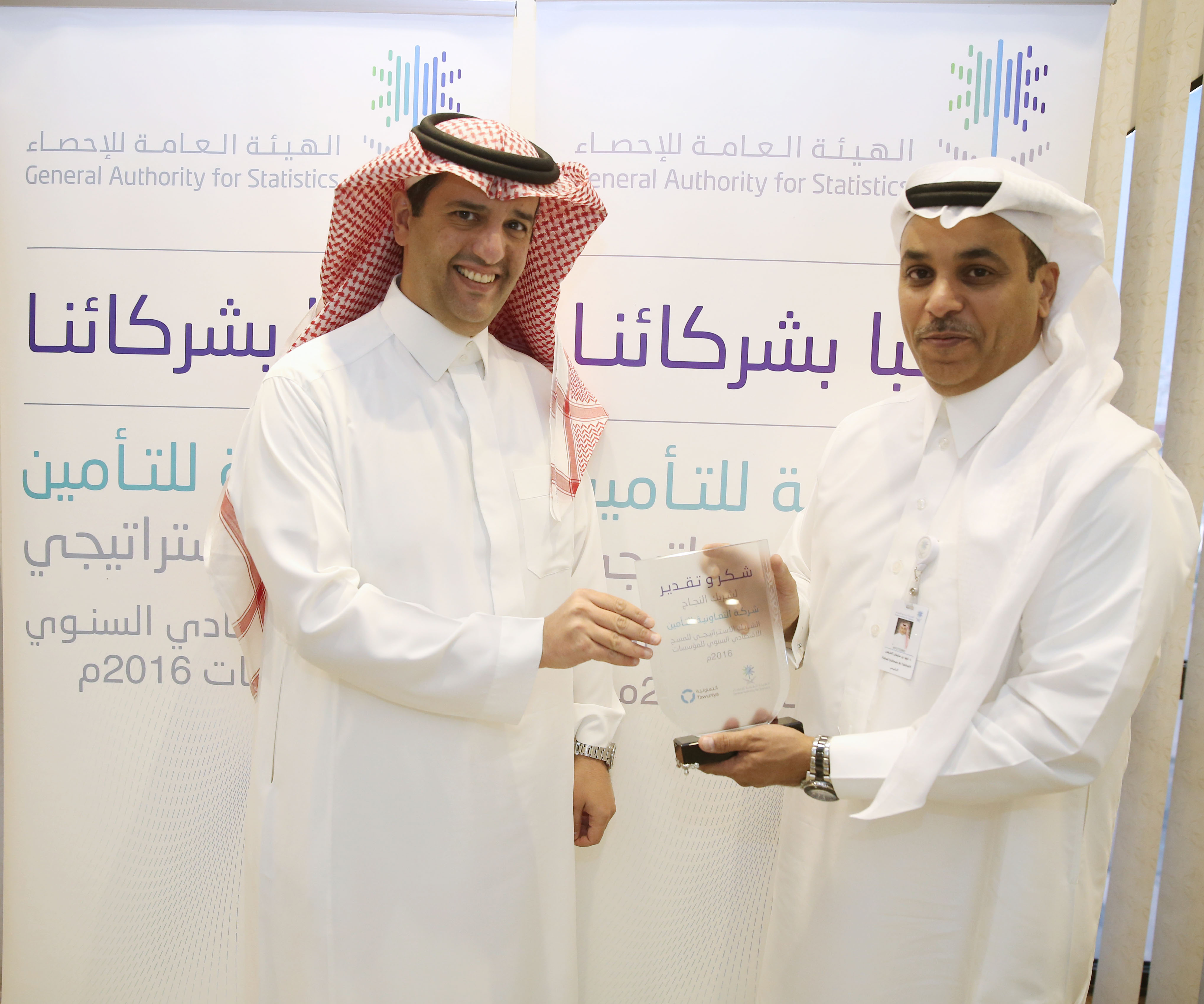
الهيئة العامة للإحصاء تكرم التعاونية للتأمين
For its role in raising statistical awareness within the economic survey
GaStat honours Tawuniya
H.E. Dr.Fahad Altekhaifi, the President of the General Authority for Statistics (GaStat), expressed his thanks to Tawuniya insurance company for supporting the operations of the economic survey of establishments (2016) that aim to support statistical awareness programs.
H.E. GaStat President stressed that giving the opportunity for the private sector to sponsor specialized surveys and research comes within the framework of enabling the support of statistical awareness, in which Gastat aims to raise the awareness of any research or study targeted groups to the importance of the information provided and its role in supporting relevant development decisions. He added that the private sector in the Kingdom of Saudi Arabia realizes its societal role and offers a number of supporting initiatives to achieve the goals of government agencies.
Dr. Altekhaifi explained that in this year, GaStat conducted its periodic economic survey through a series of economic research and surveys in order to provide detailed economic data of all establishments in the private and public sector and non-profit organizations to prepare indicators that help in recognizing the economic activities growth rate. More than 650 statistical researchers collected the data of 33,500 establishments in all regions of the Kingdom in order to obtain detailed economic data related to different aspects of the establishment.
Mr. Raed bin Abdullah Al-Tamimi, Tawuniya CEO, expressed pride in the strategic collaboration with GaStat through his visit to GaStat. He clarified that this sponsorship is part of the initiatives of Tawuniya to support the statistical awareness of the Saudi society because of the importance of its results in the development of the private sector. Mr. Al-Tamimi expressed his thanks to Gastat for giving them the opportunity to contribute in achieving the objectives of economic statistical products that supports the economic projects.
Mr. Al-Tamimi added that Tawuniya, as the leading insurance industry in the Kingdom, supports the economic projects especially small and medium enterprises and national authorities to complete the initiatives that have a positive impact on the society and insurance sector. He noted that Tawuniya has a great experience in insurance practices and provides a variety of insurance solutions that meet the needs of all business sectors, drawing attention that this approach is in line with the 2030 Saudi Vision.
Al-Tamimi asserted the importance of providing economic information about economic establishments to support decision makers in drawing a clear roadmap that contributes in implementing the goals and plans of the national transformation program. This program supports the role of economic establishments especially small and medium establishments in the GDP at a rate of up to 25% in 2020, which will contribute to reduce the dependence on oil and diversify sources of income.
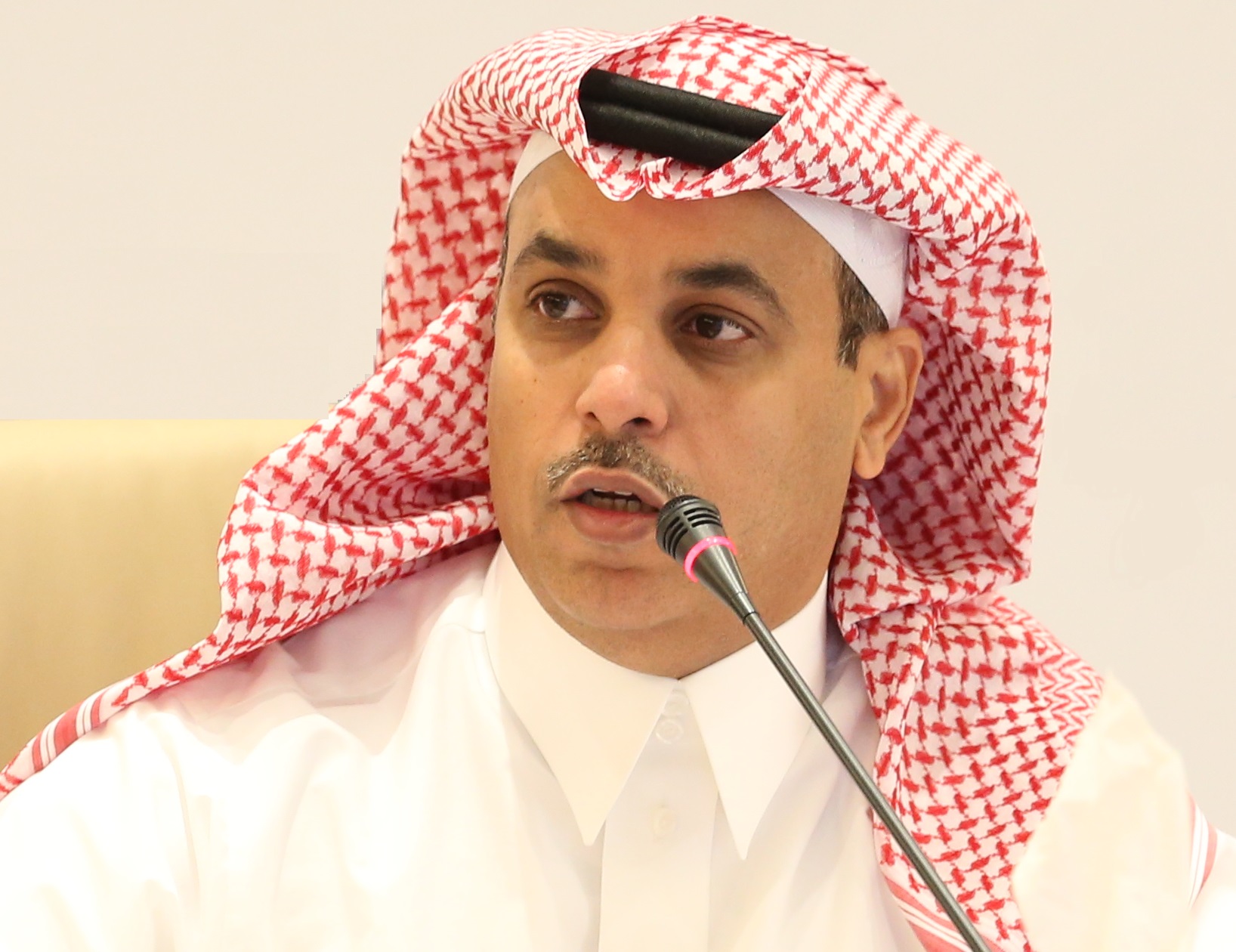
د. التخيفي: الهيئة العامة للإحصاء تعمل على تعزيز الشراكات المحلية والدولية بهدف رفع جودة البيانات لدعم متخذي القرار وراسمي السياسات
Participating with 40 countries in the International Association for Official Statistics (IAOS) conference
Dr. Altekhaifi: GaStat works on enhancing the national and international collaborations to raise the data quality and support decision and policy makers
GaStat participates in IAOS conference 2016 (round 15) Under the Patronage of H.H. Sheikh
Hazza bin Zayed Al Nahyan, Vice chairman of Abu Dhabi executive council. The conference is organized by Statistics Center in Abu Dhabi. The main theme of the IAOS 2016 conference is "The Spirit of Official Statistics: Partnership and Continuous Innovation". The conference activities will conclude on December- 8-2016.
Dr. fahad bin Sulaiman Altekhaifi, GaStat president, said that the authority keeps enhancing its experience and raising the data quality through an integrated program for all local, regional, and international collaborations, in addition to following the best international practices in order to provide comprehensive and high-quality statistical data that support policy and decision maker. He revealed that the strategic collaboration program is an essential part of the statistical sector' strategic transformation program in Saudi Arabia. GaStat worked on preparing a transformation map in the statistical work. This map included a number of projects and initiatives that cope with the 2020 national transformation program and 2030 Saudi vision. The statistical transformation project depended on three main dimensions; quality of statistical products, concentrating on clients, and activating the statistical sector. Using these three dimensions, GaStat went through six main tracks represented in reformulating the authority tendencies in a way that achieves the goals and reflects the clients tendency, reevaluating the products and services provided by the authority, determining the required operating activities to provide products and services according to clients needs, enhancing the technical part in the authority, modifying culture and developing statistical awareness, in addition to assuring the existence of the organizational structure and the governance to make a transformation. Each track has a group of projects and initiatives that are integrated with each other, so that they can contribute in implementing the strategic transformation program. These projects and initiatives aim at activating the statistical part, evaluating the products and services, and developing methodologies, standards, and classifications. This can be achieved after preparing the authority administratively, financially, technically, and systematically to pursue in the transformation process. In addition to raising the statistical awareness and culture among all users of data, information, and statistics.
On the other hand, Dr. Fahad asserted that IAOS conference was held in a time, during which all GCC statistical entities work together to achieve the vision of the custodian of the two holly mosques that enhances integration between GCC countries, improves GCC statistical performance, and meets the leaders expectations. All GCC statistical entities work on supporting the integrated work especially the collaboration between them, so that they can deal with all GCC essential issues.
GaStat participation in this conference represents its belief in collaboration and how it develops the statistical work and raises awareness among all producers and users of data. Moreover, it identifies the importance of official statistics and how they support the developmental resolutions in the region. Altekhaifi clarified that GaStat along with all GCC statistical entities are trying to enhance and develop the concept of official statistics so that they reach an excellent level of efficiency. Furthermore, they enhance the value of official statistics in the information community. They also enhance collaborations, innovation, and national statistical system update.
H.E. expressed his gratitude for the great hospitality of Abu Dhabi in this conference. It is the first country in the region that organizes an IAOS conference, as this conference is held every two years by one of the IAOS members. So, this assured the GCC statistical entities role in the region.
It is worth mentioning that the 15th round of the conference depends on four main aspects, about which all sessions are conducted. The aspects are: enhancing the value of official statistics in the information community, making collaborations to achieve results, innovation and updating national statistical systems, and following the main principals in the statistical work practice.
